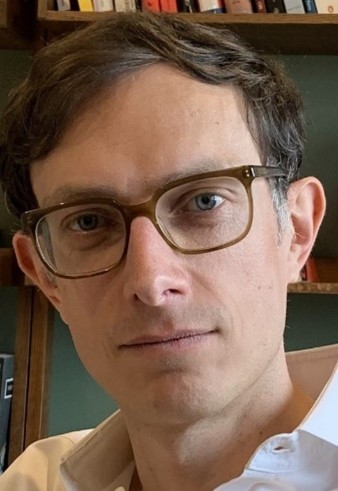Panel 1: Opening Moves in A New Competitive Era – Historical Lessons for Getting Them Right
8 February
The United States’ unipolar moment since winning the Cold War has ended, and we have entered a new era of competition. The world has seen the opening phases of many new eras—1555, 1648, 1713, 1815, 1871, 1918 or 1945 to name just a few—all distinctive but also sharing common themes. The opening phases of the Cold War through to the 1950s, for example, saw the United States take economic, political, military and technological choices that built enduring advantage for the rest of the Cold War. The United States now finds itself making opening moves in our latest historical era. What might history tell us about the opening moves it can take this time?
Dr. Nicholas Wright (Moderator)
Dr. Nicholas Wright combines neuroscientific, behavioral, and technological insights to understand emerging technology and global strategy, in ways useful for policy. He is an affiliated scholar at Georgetown University, Honorary Senior Research Fellow at University College London (UCL), Consultant at Intelligent Biology, and Adjunct Fellow (Non-Resident) at the Center for Strategic and International Studies. He is currently writing a book for Pan Macmillan (UK) and St. Martin’s Press (US) on the brain and war.
He works closely with various parts of the US and UK Governments, including the Pentagon Joint Staff. On artificial intelligence (AI) he advises Europe’s largest tech company, SAP. DARPA used his definition of Grey Zone conflict for their recent AI programme on the Gray Zone. Foreign Affairs chose his piece on AI and the global order for its Top 10 of 2018 on the net. He edited a book on Artificial Intelligence, China, Russia, and Global Order (Air University Press, 2019). He has led Track 1.5 dialogues, for example with participants from the White House, UK Cabinet Office, and Australian Prime Minister’s office, as well as with the Australian and Canadian Government Chief Scientists. He previously worked in Nuclear Policy at the Carnegie Endowment for International Peace, Washington DC; in functional brain imaging at UCL and in the Department of Government at the London School of Economics; and was a clinical neurologist in Oxford and London. He has many academic (e.g., Proceedings of the Royal Society), general (e.g., the Atlantic, Foreign Policy, Foreign Affairs), and policy publications (e.g., www.intelligentbiology.co.uk) and has appeared on the BBC and CNN. He has a medical degree from UCL, a BSc in Health Policy from Imperial College London, Membership of the Royal College of Physicians (UK), and an MSc in Neuroscience and a PhD in Neuroscience both from UCL.
Dr. Eliot A. Cohen
Eliot A. Cohen is Robert E. Osgood Professor at Johns Hopkins University’s School of Advanced International Studies (SAIS), the founding director of the Philip Merrill Center for Strategic Studies there, and its former Dean. He is also the Arleigh Burke Chair in Strategy at the Center for Strategic and International Studies. He is the 2021 recipient of the SAIS Founders’ Award for lifetime service to the school and has twice won the SAIS Excellence in Teaching Award.
A 1977 graduate of Harvard College, he received his PhD there in political science in 1982. From 1982 to 1985 he was Assistant Professor of Government at Harvard, and Assistant Dean of Harvard College. In 1985 he became a member of the Strategy Department of the United States Naval War College. In February 1990 he joined the Policy Planning Staff of the Office of the Secretary of Defense, and in July of that year he was appointed professor of strategic studies at SAIS.
Eliot Cohen is the author of numerous books including The Big Stick: The Limits of Soft Power and the Necessity of Military Force (2017), Conquered into Liberty: Two Centuries of Battles along the Great Warpath that made the American Way of War (2011), and Supreme Command: Soldiers, Statesmen, and Leadership in Wartime (2002). His articles have appeared in numerous scholarly and popular journals, he publishes often in national newspapers such as the Washington Post, Wall Street Journal, and New York Times and has made numerous appearances on major American and international television networks. He is a contributing writer at The Atlantic where his writings appear regularly and has written frequently for Foreign Affairs and other scholarly and policy journals. His current book project, Rough Magic: Shakespeare on Getting, Using, and Losing Power is under contract to Basic Books.
In 1982 he was commissioned as a military intelligence officer in the United States Army Reserve. In the past he has served as a member of the Defense Policy Advisory Board and the National Security Advisory Panel of the National Intelligence Council, the Council of the International Institute for Strategic Studies, and the Committee on Studies of the Council on Foreign Relations. He is an Adjunct Senior Fellow at the Center for a New American Security, a member of the Advisory Board of the Niskanen Center, the Board of Trustees of Fort Ticonderoga, and is a Presidential Counselor at the National World War II Museum.
Dr. Kori Schake
Kori Schake is a senior fellow and the director of foreign and defense policy studies at the American Enterprise Institute (AEI).
Before joining AEI, Dr. Schake was the deputy director-general of the International Institute for Strategic Studies in London. She has had a distinguished career in government, working at the US State Department, the US Department of Defense, and the National Security Council at the White House. She has also taught at Stanford, West Point, Johns Hopkins University’s School of Advanced International Studies, National Defense University, and the University of Maryland. Dr. Schake is the author of five books, among them “America vs the West: Can the Liberal World Order Be Preserved?” (Penguin Random House Australia, Lowy Institute, 2018); “Safe Passage: The Transition from British to American Hegemony” (Harvard University Press, 2017); “State of Disrepair: Fixing the Culture and Practices of the State Department” (Hoover Institution Press, 2012); and “Managing American Hegemony: Essays on Power in a Time of Dominance” (Hoover Institution Press, 2009).
She is also the coeditor, along with former Secretary of Defense Jim Mattis, of “Warriors & Citizens: American Views of Our Military” (Hoover Institution Press, 2016). Dr. Schake has been widely published in policy journals and the popular press, including in CNN.com, Foreign Affairs, Politico, The New York Times, The Wall Street Journal, and The Washington Post. She is a contributing writer at The Atlantic and War on the Rocks. Dr. Schake has a PhD and MA in government and politics from the University of Maryland, as well as an MPM from the University of Maryland School of Public Policy. Her BA in international relations is from Stanford University.
Dr. Sergey Radchenko
Sergey Radchenko is the Wilson E. Schmidt Distinguished Professor at the Johns Hopkins School of Advanced International Studies. He has written extensively on the Cold War, nuclear history, and on Russian and Chinese foreign and security policies. He has served as a Global Fellow and a Public Policy Fellow at the Woodrow Wilson Centre and as the Zi Jiang Distinguished Professor at East China Normal University (Shanghai). Professor Radchenko’s books include Two Suns in the Heavens: the Sino-Soviet Struggle for Supremacy (Wilson Center Press & Stanford UP, 2009) and Unwanted Visionaries: the Soviet Failure in Asia (Oxford UP, 2014). Professor Radchenko is a native of Sakhalin Island, Russia, was educated in the US, Hong Kong, and the UK, where he received his PhD in 2005 (LSE). Before he joined SAIS, Professor Radchenko worked and lived in Mongolia, China, and Wales.



